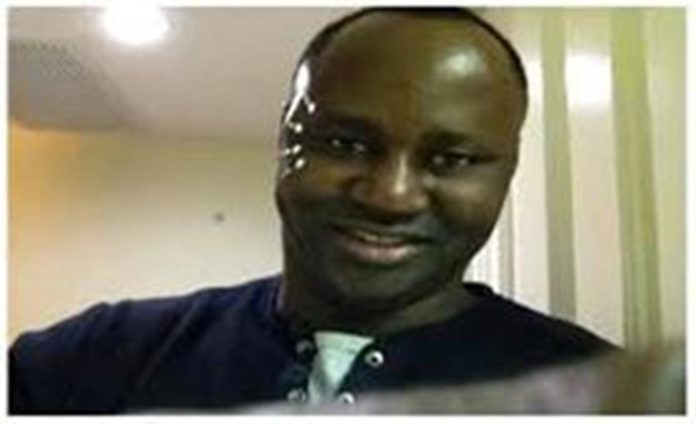By Nelson Manneh
Justice Ebrima Jaiteh of the High Court has on Monday, 30th July 2019 granted bail to 17 defendants and discharged 5 in the Koina caste system case.
The trial judge granted the accused persons bail in the sum of D50, 000.00 each with one Gambian surety each who shall swore and depose to an affidavit of means in the like sum.
The other bail terms are; the said surety must deposit their national Identity Card with the Registrar of the Court; the accused persons must deposit their travel document or national identity card or any other national document and must not travel out of The Gambia pending the hearing and determination of this trial; the accused persons shall require attending Court at each and every hearing of the trial; the accused persons are bound over to keep the peace and not to commit anything pending the hearing and determination of this trial; and the accused persons shall report to Basse Police station every Monday pending the hearing and determination of this trial or further orders of this Honourable Court.
Lawyer Abdul Aziz Saho announced his appearance for the State while Counsel Lamin S. Camara and Pa Harry Jammeh represented the accused persons.
The accused persons are; Haji Jabbie, Ousman Gumbaneh, Musa Kanuba Lema Kanuteh, Lekeme Dambelly, Essa Gumbally, Bangally Gumaneh, Marie Kinateh, Omar Gumaneh, Bangally Abdoul Gumaneh, Essa Jarra, Dawda Gumbally, Essa Gumbally, Bangally Jawara, Bahore Gumbally, Banta Gumaneh, Abodou Gumaneh, Mamadou Lamin Gumaneh, Saikou Lemme Gumaneh, Dawda Touray, Bangally Alimatou Gumaneh, Karaba Sissohor, and Bakary Jawara.
The court discharged Muhammed Sanneh, Jarga Camara, Bangally Kanouteh, Ebrima Gumaneh and Musa Kamateh.
When the names of the accused person were mentioned in court, the court realized that there were five people who were remanded at the Janjangbureh Prison and their names were not captured on the charge sheet and he discharged them on the charges.
Lawyer A.S Saho who appeared for the state applied for the accused person to take their plea and continue with the matter.
Lawyer L.S Camara argued that the accused persons present cannot take their plea in the absence of the other accused persons. The State Counsel argued that the accused persons can take their plea.
Justice Ebrima Jaiteh after listening to both parties ruled that the accused persons present cannot take their plea in the absence of the others. He urged the State to bring them to court for them to be prosecuted at the same time.
Lawyer L.S Camara then applied for the accused persons to be released on bail as the offence they committed is not murder and is bailable relying on section 24 of the Constitution.
It is the submission of Counsel Camara that the accused persons are charged with serious offences. However, section 29(2) of the Criminal Procedure Code confers jurisdiction on the High Court to substitute lesser sentence where the sentence is life imprisonment. Counsel Camara submitted that the only mandatory provision in our laws, which is not bailable, is where the punishment is death. Counsel Camara argued that accused persons are not flight risk and there is no investigation ongoing, hence there is bill of indictment before this Honourable Court. Counsel Camara submitted that this Court could bind over the accused persons to keep the peace. Counsel Camara respectfully enjoined the Court to grant the accused persons bail.
The Prosecutor opposed the bail application on the grounds that the accused persons are charged with a serious offence in count three (3), which is not bailable as it attracts the punishment of life imprisonment. The prosecutor submitted that section 29(2) of the Criminal Code does not apply in this case. The prosecutor submitted that if the accused persons are granted bail, there is a likelihood of more violence in the Community they come from. The prosecutor urged the Court to refuse the bail application.
“None of us can guarantee that if these people are given bail, they will not take part in doing the same act,” Counsel Saho said.
Justices Jaiteh in his ruling said: “The law that governs the grant of bail by Courts is section 99(1) of the Criminal Procedure Code.”
He added: “It follows from the wordings of section 99(1) of the Criminal Procedure Code that a person other than a person accused of an offence punishable with death or imprisonment for life, the Court may grant bail. In the instant case, the accused persons are charged with arson contrary to section 305 of the Criminal Procedure Code and the punishment prescribed by law is life imprisonment. By strict application of section 99(1) of the Criminal Procedure Code, any punishment for life imprisonment is not a bailable offence in the jurisdiction. However, Defence Counsel L. S. Camara drew the Court’s attention to section 29(2) of the Criminal Code, which provides that:
“A person liable to imprisonment for life or any other period for an offence against this Code or against other law may be sentenced to a shorter term.”
Justice Jaiteh when granting bail relied on section 29(2) of the Criminal Code and the case of State V Henry Gabriel.
The trial judge said the fundamental hallmark of our criminal justice system is that a person accused of committing an offence is cloaked with the presumption of innocence.
He added: “Meanwhile, I shall adjourn this matter to the 28th day of October 2019 at 10am holden at Basse High Court for plea taking.”
















